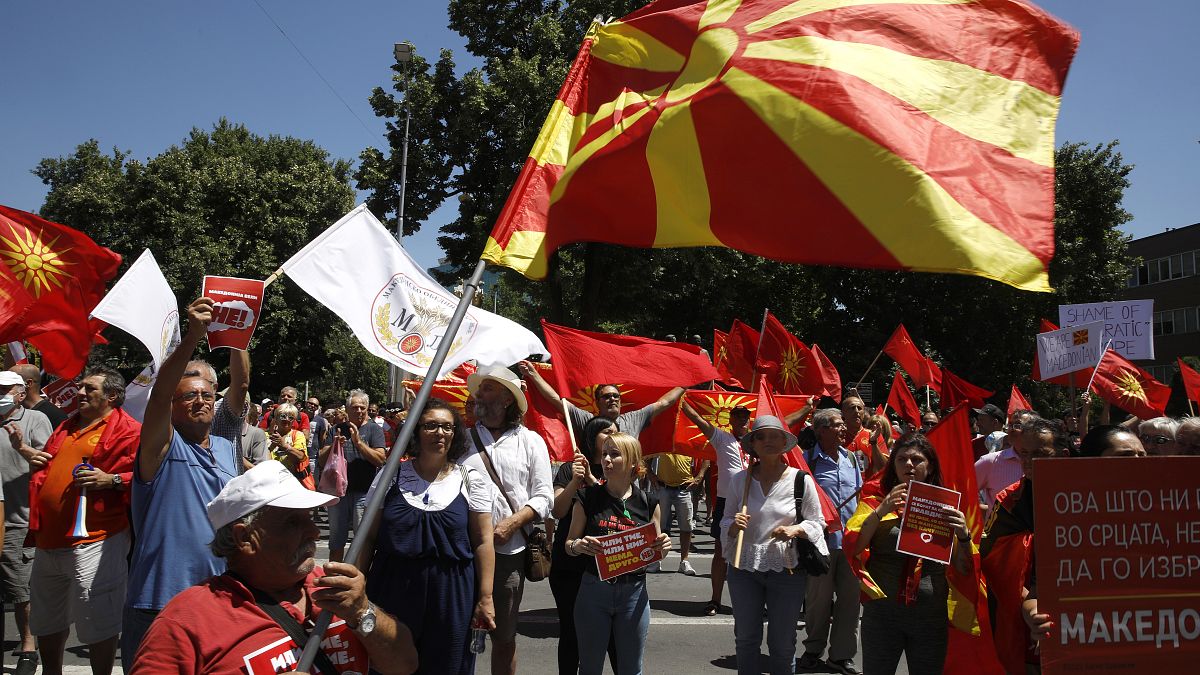Hungary’s Prime Minister Viktor Orbán has accused European Union officials of damaging North Macedonia’s “national pride” by further delaying the country’s bid to join the bloc. During a visit to the country, Orbán also offered to mediate with EU member Bulgaria, whose dispute with Skopje over Balkan history and heritage triggered the new delay. The EU ambassadors meeting in Brussels on Wednesday decided to push ahead with Albania’s EU accession process independently of North Macedonia’s, a move that Orbán called a “big mistake” as both countries had begun membership talks in 2022. North Macedonia’s bid was delayed by a dispute with Bulgaria over Balkan history, language, and culture, with the previous government in Skopje accepting a Bulgarian demand to insert a reference to a Bulgarian ethnic minority in the constitution.
However, the government lacked the parliamentary majority to effect the change, and the new conservative government led by Prime Minister Hristijan Mickoski insists on amending the constitution only if Bulgaria first approves North Macedonia’s EU membership. This comes after North Macedonia resolved a long-standing dispute with Greece over its name through the 2018 Prespa Agreement, changing its name to “the Republic of North Macedonia.” President Gordana Siljanovska-Davkova expressed frustration at the slow progress towards EU membership, likening it to “waiting for Godot.”
Orbán emphasized the need for solutions during a news conference with Prime Minister Mickoski, highlighting Hungary’s willingness to mediate between North Macedonia and Bulgaria to resolve the dispute. He criticized the decision to separate Albania’s EU accession process from North Macedonia’s, calling it a mistake. The delay in North Macedonia’s bid was a result of the dispute with Bulgaria over Balkan history, language, and culture, with the previous government making concessions to address Bulgarian demands in the constitution.
The current government in Skopje insists on amending the constitution only after Bulgaria approves North Macedonia’s EU membership, adding another hurdle to the country’s accession process. Despite resolving the name dispute with Greece through the Prespa Agreement, North Macedonia continues to face challenges on its path to EU membership. President Siljanovska-Davkova’s remarks at the UN General Assembly underscore the frustration over the slow progress, likening it to the elusive nature of waiting for Godot.
Orbán’s offer to mediate between North Macedonia and Bulgaria reflects Hungary’s commitment to finding solutions to the ongoing dispute that has impeded North Macedonia’s EU membership bid. Despite the previous government’s efforts to address Bulgarian demands in the constitution, the current government’s stance on linking constitutional amendments to EU approval adds complexity to the situation. The separation of Albania’s EU accession process from North Macedonia’s further complicates the situation, prompting criticism from Orbán and others.
The delay in North Macedonia’s EU bid due to the dispute with Bulgaria over Balkan history, language, and culture highlights the challenges faced by countries in the region seeking EU membership. The resolution of the name dispute with Greece in 2018 was a significant step towards North Macedonia’s EU aspirations. However, ongoing disputes with neighboring countries continue to hinder progress, leading to frustrations expressed by President Siljanovska-Davkova.
Orbán’s call for finding solutions and his willingness to mediate between North Macedonia and Bulgaria demonstrate a diplomatic approach to resolving the impasse. The EU’s decision to separate Albania’s accession process from North Macedonia’s has raised concerns and criticisms, emphasizing the need for a unified approach to Western Balkan countries’ EU integration. As North Macedonia navigates the complex challenges on its path to EU membership, proactive engagement and diplomatic efforts are essential to overcoming obstacles and achieving its aspirations.










